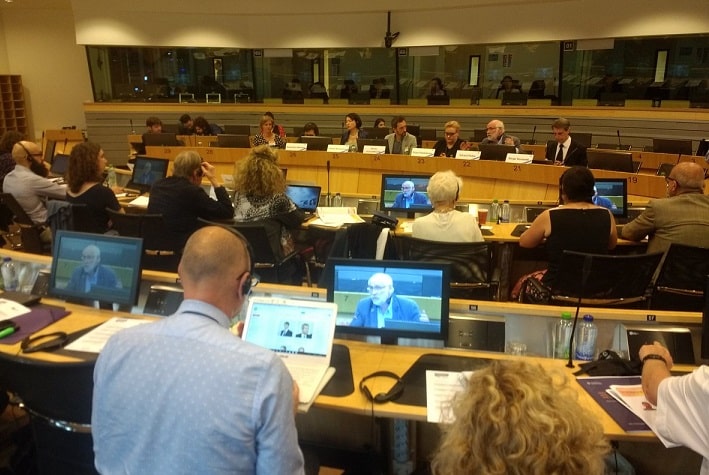On the occasion of the Civil Society Days hosted by the European Economic and Social Committee, AGE Platform Europe co-organized with the European Disability Forum a workshop on empowerment initiatives to overcome the digital divide.
Digitalisation can optimize access to services, reduce costs, increase efficiency and enable better opportunities for civic participation, especially for people with disabilities or specific care needs. 
- availability
- affordability
- accessibility
Yet, given the poor diversity among stakeholders involved in their development, digital goods and services often fail to bridge the digital divide. Member of the European Parliament Sirpa Pietikäinen (EPP, Finland) observed ICT developers remain mostly technically well educated young white men.
This lack of diversity is not compensated by testing panels, which remain too small and not diverse enough to take into account a true variety of needs, level of incomes and places of living (e.g. people living in rural areas).
Co-creation, design-for-all and training to bridge the digital divide
Still faced with the above observation in 2018, grass-root organisations participating in the workshop called for the mainstreaming of “design-for-all” as the only way to take account of the human diversity. Panel discussions provided numerous examples of co-creation practices in public services with the MobileAge project, capacity-building of older persons with low digital skills by the AGE member 50+ Hellas or web accessibility training for developers by AnySurfer.
The importance of accessibility and supportive legislations
Participants found that accessibility being at the core of ICT products and services – as are security and data protection – is the most important recommendation to overcome the digital divide. The proposal of a European Accessibility Act currently under trilogue negotiations between the European Commission, the European Parliament and Member States of the Council quite obviously popped up in the debate as an important piece of legislation to create standards and requirements able to mainstream accessibility in Europe.
More info:
The presentations from our joint workshop and from the other Civil Society Days workshops are available on the EESC website.






